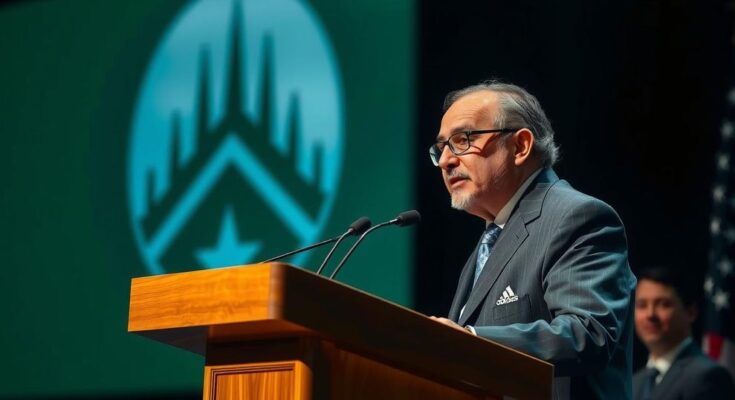In October 2023, Adil Najam, Dean Emeritus at Boston University, delivered impactful lectures at the University of Cambridge and the University of Oxford, emphasizing the importance of climate change adaptation and the potential of faith-based approaches in motivating climate action. His discussions included the concept of the ‘Age of Adaptation’ and a focus on nature-based solutions in Pakistan, advocating for comprehensive strategies that go beyond traditional scientific and economic incentives.
Adil Najam, Dean Emeritus and Professor of International Relations and of Earth and Environment at Boston University’s Frederick S. Pardee School of Global Studies, imparted a series of significant lectures at prestigious UK universities, namely Cambridge and Oxford, during October 2023. These presentations centered on fundamental themes of climate change adaptation and the role of faith in promoting climate action. On October 10, Najam addressed audiences at the University of Cambridge, where he delivered two key presentations. The first, held at the Attenborough Center for the Cambridge Conservation Initiative, focused on his concept of the ‘Age of Adaptation.’ In this talk, he emphasized the necessity for urgent actions beyond mere emission control, particularly targeting vulnerable developing countries that are least responsible for climate change. His second lecture at Cambridge occurred at the UN Environment Programme’s World Conservation Monitoring Centre, addressing nature-based climate solutions, particularly in Pakistan. He expounded upon his leadership of the “Living Indus Initiative,” a project pivotal to Pakistan’s climate adaptation strategy, which has earned recognition as UNEP’s ‘Flagship Climate Project.’ On October 14, Professor Najam presented at the Oxford Centre for Islamic Studies, where he explored whether faith could enhance climate behavior. He articulated the deficiencies of relying strictly on scientific and economic motives for climate action, advocating for a holistic approach that integrates values and faith-based frameworks to encourage environmentally responsible actions, particularly in Muslim communities, underscoring the importance of water conservation. This presentation is part of Najam’s ongoing ‘Faith and Climate Change’ initiative at the Pardee Center, in partnership with the Oxford Centre for Islamic Studies. Details concerning both the Cambridge and Oxford presentations are documented with accompanying visual content.
Climate change is a pressing global issue that requires multifaceted solutions beyond conventional approaches such as emission reductions. Among the strategies discussed by climate experts is the concept of ‘adaptation’—the process of adjusting societal values, infrastructure, and policy frameworks to respond to the effects of climate change, particularly in developing nations that are disproportionately affected. Furthermore, there is an increasing recognition of the role that faith and values can play in influencing public behavior towards climate action, especially within diverse cultural contexts. Adil Najam’s lectures underscore these critical areas, advocating for a broader perspective on how to motivate individuals and communities to engage with climate change mitigation and adaptation efforts effectively. His experiences in Pakistan highlight successful integration of nature-based solutions into climate policy, showcasing the local implementations that can serve as models for global strategies.
Adil Najam’s recent lectures at Cambridge and Oxford highlight the urgent need for a shift in how societies approach climate change adaptation and the potential of faith-based frameworks in galvanizing public engagement. Through discussing the ‘Age of Adaptation’ and demonstrating successful initiatives like the ‘Living Indus Initiative,’ he emphasizes the necessity of immediate action tailored to the unique challenges faced by vulnerable populations. Furthermore, Najam’s insights regarding the incorporation of values into climate action strategies provide a compelling case for a more inclusive approach to tackling global environmental issues.
Original Source: www.bu.edu




